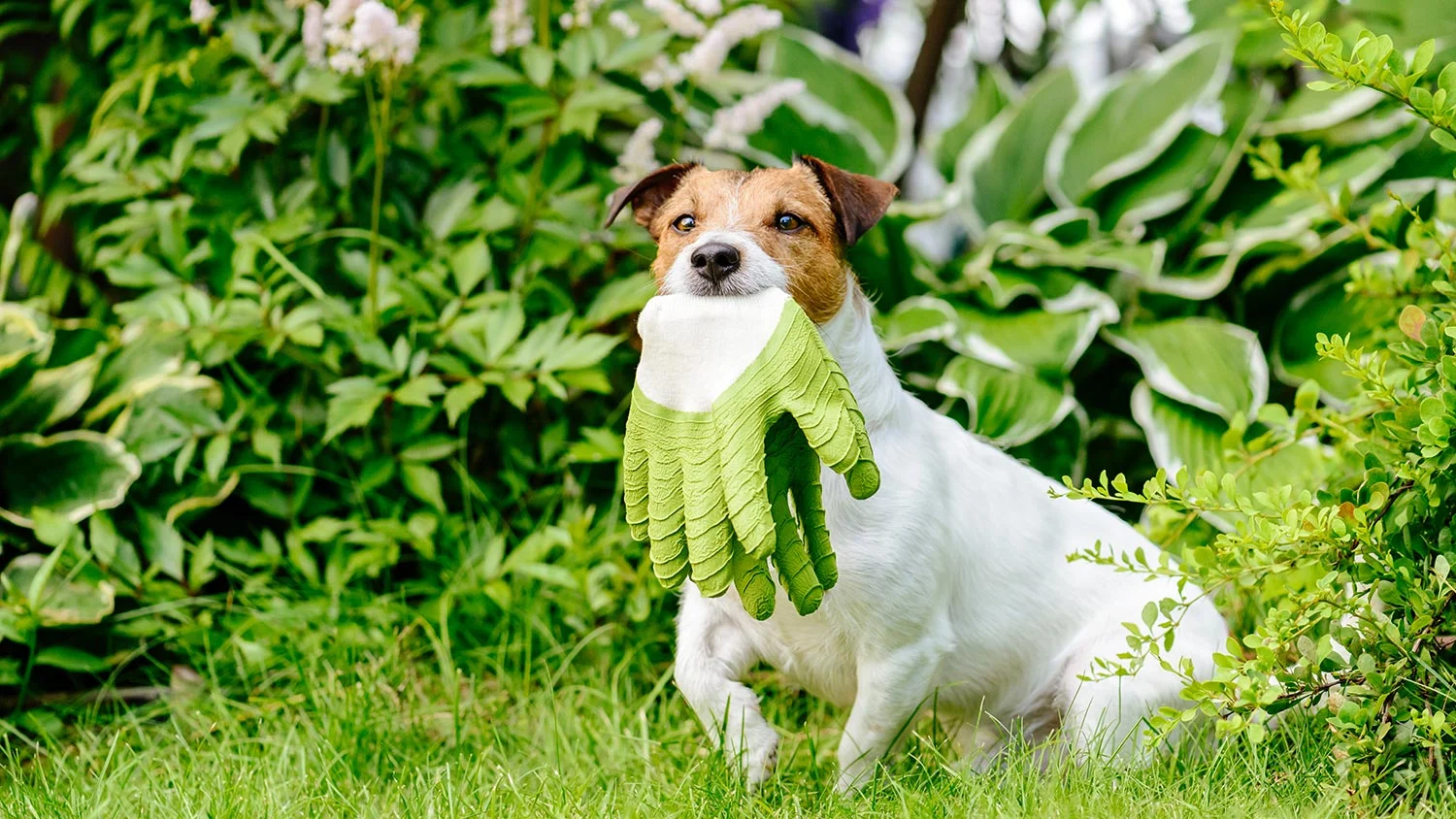Sharing Your Harvest with Fido
The best part about spring and summer is the abundance of delicious fruits and vegetables! Do you know what goodies from the garden you can share with your dog?

It’s that time of year again! Gardeners everywhere are pulling out seed books and scouring the pages to decide what to include in backyard fruit and vegetable gardens. Pet owners will have to double check that what is chosen to plant is pet-friendly, but why not go a step beyond and see what can be grown and shared with your pup!
What Vegetables Can My Dog Eat?
Wild canines, such as wolves and dingoes, often scavenge fruits and vegetables to supplement their meals. Vegetables help to provide vitamins, minerals and antioxidants for your dog. Below is a list of some commonly grown vegetables that are healthy for you to share.
Pet-Safe Produce:
Blueberries
Blueberries are full of antioxidants that help to prevent memory loss, hypertension, obesity, insulin resistance and urinary tract infections in your dog. They also are packed full of fiber, vitamin C and vitamin K!
Carrots
Feeding your dog carrots can be highly beneficial to their health! Carrots contain vitamin A which promotes eye, skin and coat health, and strengthen the immune system. Carrots also are high in soluble fiber which can help your dog’s digestive system. Because raw carrots have a rough outer texture, they can help to clean buildup off your dog’s tongue and teeth.
Celery
Celery contains vitamins A, B and C and are considered good for the heart. Nutrients in celery are known to help fight cancer as well!
Cucumber
Feeding your pup cucumber is a great way to boost his energy and supply him with vitamins C, K and B1. Cucumbers have a high-water content of about 96%, so they can help your dog rehydrate on a hot day!
Green Beans
Green beans contain vitamin A, K and C and can help to improve the immune system and skin and coat health. Green beans are a healthy, low-fat alternative to dog biscuits and their bite size form make them easy to give as treats!
Mango
With some preparations before feeding, these fruits can act as a tasty treat for your dog! The skin of mangoes can be difficult for your dog to digest, and the pit contains small amounts of cyanide that can harm your dog. Once the fruit is peeled and the pit removed, feed these fruits to provide your dog with additional vitamins A, B6, C and E. The sweet flavor makes this treat a big hit!
Peas
Fresh peas from the garden with edible pods are a great source of minerals, protein and fiber. Avoid feeding canned peas, which include large amounts of sodium that can be harmful to your dog.
Spinach
Spinach can act as roughage in your dog’s diet while providing antioxidants and iron. Its high levels of vitamin K will maintain your dog’s bone health and growth. Some dogs may not love the flavor of spinach right away, so slowly introducing it into your dog’s diet along with some tastier treats can help encourage him to learn to love it!
Squash
Potassium in squash can reduce the chance of heart failure in dogs. Vitamin A and calcium will help to keep your dog’s kidneys healthy as well!
Watermelon (preferably seedless)
Watermelon is full of vitamins and potassium. Because it is comprised of about 92% water, this treat may be best served when your dog needs to increase his water intake! Remember to remove the seeds and rind before sharing this fruit with your pup!
What Else to Consider:
Allergies
It’s important to consider that some dogs may have allergies to certain fruits and vegetables. Watch your dog closely when first introducing new foods and stop feeding them if your dog has a negative reaction.
Feeding Safety
Remember that some of these foods can become a choking hazard by a dog that is too enthusiastic to eat the treat and forgets to chew. Cutting fruits and veggies down to a bite-sized portion can ensure your dog won’t choke!
A dog’s digestive tract doesn’t break down vegetables the same way as humans, so some dogs may prefer their vegetables pureed or cooked. Keep an eye on your dog when feeding these treats to determine if your dog needs them specially prepared.
Moderation
Feeding fruits and vegetables to your dog is not a substitute for quality dog food. Check with your veterinarian before making any major diet changes with your pup. All the foods mentioned above should be fed in moderation as treats. An overdose of vitamins in a dog’s diet can cause gastrointestinal upset or harm.
Get Planting!
Now that you know some vegetables and fruits that are dog-friendly, you should get started on planting your garden! In a few weeks, you’ll be able to share the harvest with your dog and know that your hard work is helping to keep your dog healthy and happy!

Every Dog and Cat Deserves the Pet Insurance of Champions
Get prize-winning care for your pets.

Mary comes to AKC Pet Insurance with an extensive background in animal care. As a lifelong animal lover, she has a passion for promoting pet health and wellness. Mary lives in Kentucky with her orange kitty, "Cat" and her dog, " Wubbi".
READ MORE ARTICLES

